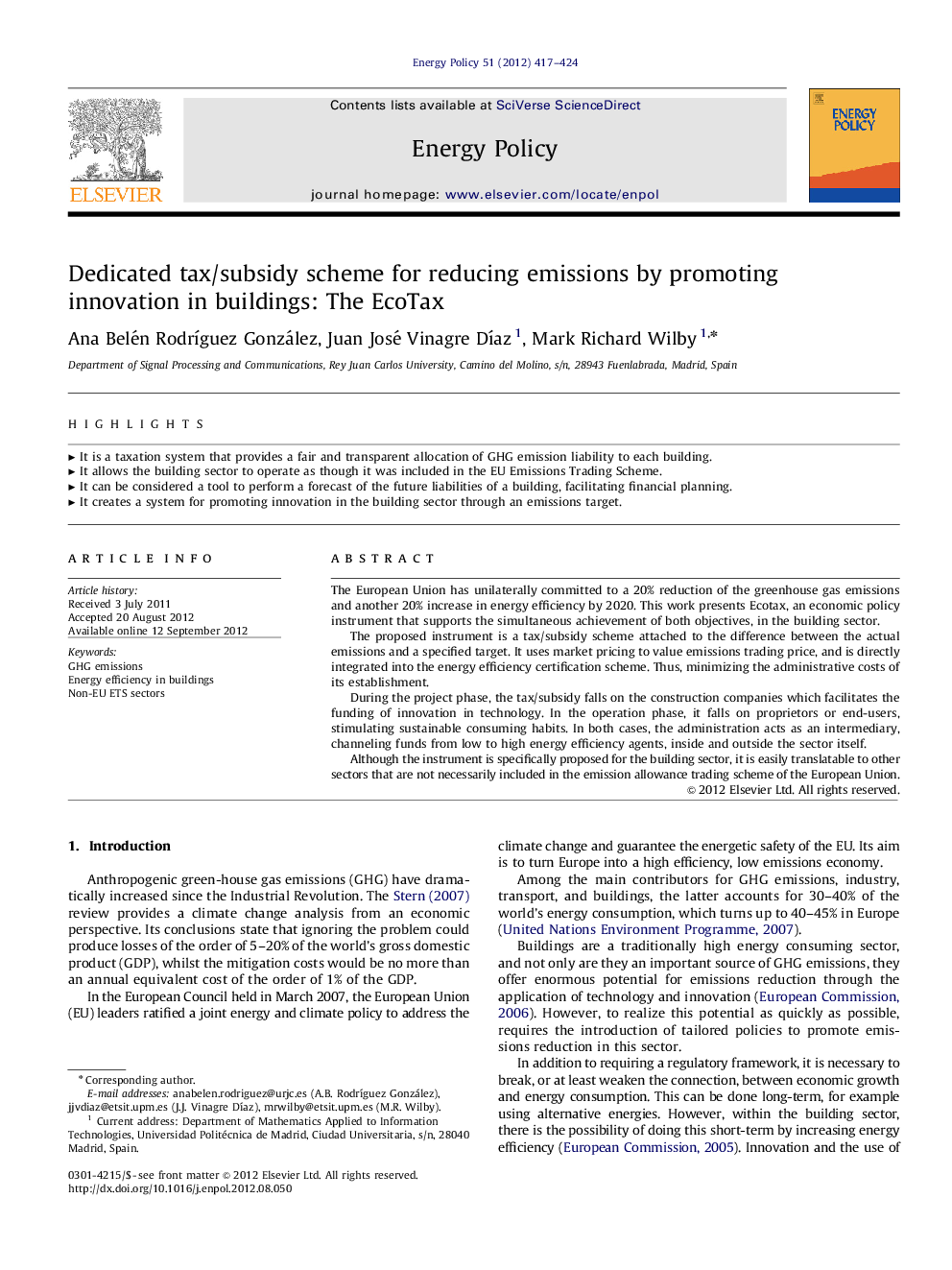| Article ID | Journal | Published Year | Pages | File Type |
|---|---|---|---|---|
| 995618 | Energy Policy | 2012 | 8 Pages |
The European Union has unilaterally committed to a 20% reduction of the greenhouse gas emissions and another 20% increase in energy efficiency by 2020. This work presents Ecotax, an economic policy instrument that supports the simultaneous achievement of both objectives, in the building sector.The proposed instrument is a tax/subsidy scheme attached to the difference between the actual emissions and a specified target. It uses market pricing to value emissions trading price, and is directly integrated into the energy efficiency certification scheme. Thus, minimizing the administrative costs of its establishment.During the project phase, the tax/subsidy falls on the construction companies which facilitates the funding of innovation in technology. In the operation phase, it falls on proprietors or end-users, stimulating sustainable consuming habits. In both cases, the administration acts as an intermediary, channeling funds from low to high energy efficiency agents, inside and outside the sector itself.Although the instrument is specifically proposed for the building sector, it is easily translatable to other sectors that are not necessarily included in the emission allowance trading scheme of the European Union.
► It is a taxation system that provides a fair and transparent allocation of GHG emission liability to each building. ► It allows the building sector to operate as though it was included in the EU Emissions Trading Scheme. ► It can be considered a tool to perform a forecast of the future liabilities of a building, facilitating financial planning. ► It creates a system for promoting innovation in the building sector through an emissions target.
